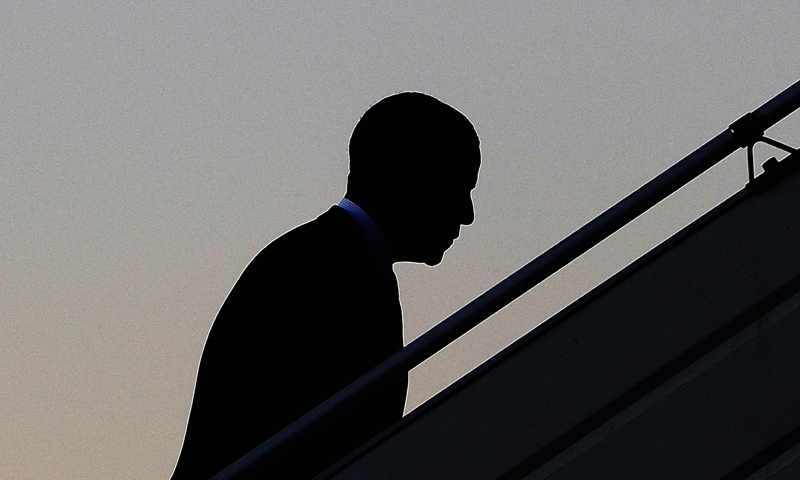WASHINGTON, Sept 7: In his weekly address on Saturday, US President Barack Obama urged Congress to support a limited and targeted military action against the Syrian government for its alleged use of chemical weapons.
“I call on members of Congress, from both (Republican and Democratic) parties, to come together and stand up for the kind of world we want to live in; the kind of world we want to leave our children and future generations,” he said.
Mr Obama returned to Washington on Friday night after discussing Syria with Russian President Vladimir Putin and other world leaders at the Group of 20 summit in St. Petersburg, Russia.
The US media noted that Mr Obama failed to persuade other leaders to support his decision for launching limited military strikes on Syria.
The media speculated that the failure will make it even harder for Mr Obama to persuade sceptical American legislators and public to support his decision.
Earlier, the White House released a joint statement–by leaders of Australia, Canada, France, Italy, Japan, Republic of Korea, Saudi Arabia, Spain, Turkey, the United Kingdom and the United States—condemning the Aug. 21 chemical weapons attack in rebel-held suburbs of Damascus.
But the statement, signed at the summit, did not have what the US wanted: an endorsement of President Obama’s call for a military strike.
Instead, it merely said that “we call for a strong international response to this grave violation of the world’s rules and conscience that will send a clear message that this kind of atrocity can never be repeated.”
President Obama is not getting much support at home either for his military option. Recent opinion surveys show that an overwhelming majority of Americans opposes the military option.
In his weekly address, Mr Obama also acknowledged that the American people were weary after a decade of war, which is why US action would not include US boots on the ground.
He pointed out that his proposed authorisation focused on clearly stated objectives–preventing and deterring the use and proliferation of chemical weapons within, to, or from Syria, degrading the Assad regime’s capacity to carry out future CW attacks, and deterring this behaviour in others who would otherwise feel emboldened to use such weapons.
Mr Obama argued that the attack on a civilian population in Syria was also a serious threat to America’s national security. “Not only because they cause death and destruction in the most indiscriminate and inhumane way possible – but because they can also fall into the hands of terrorist groups who wish to do us harm,” he said.
Addressing his nation from the White House last week, Mr Obama had announced that he had decided to take military action against the Syrian government.
“This is not a decision I made lightly. Deciding to use military force is the most solemn decision we can make as a nation,” he said on Saturday.
Mr Obama reminded his nation that instead of launching the attacks, he referred the matter to Congress because “I also know that our country will be stronger if we act together, and our actions will be more effective.”
He assured his nation that he did not want an open-ended intervention in Syria.
“This would not be another Iraq or Afghanistan. There would be no American boots on the ground. Any action we take would be limited, both in time and scope–designed to deter the Syrian government from gassing its own people again and degrade its ability to do so,” he said.
Mr Obama urged the American people to support his decision because “we are the United States of America. We cannot turn a blind eye to images like the ones we’ve seen out of Syria.”
Failing to respond to this “outrageous attack”, he warned would “send a horrible signal to other nations that there would be no consequences for their use of these weapons. All of which would pose a serious threat to our national security.”
















































Dear visitor, the comments section is undergoing an overhaul and will return soon.